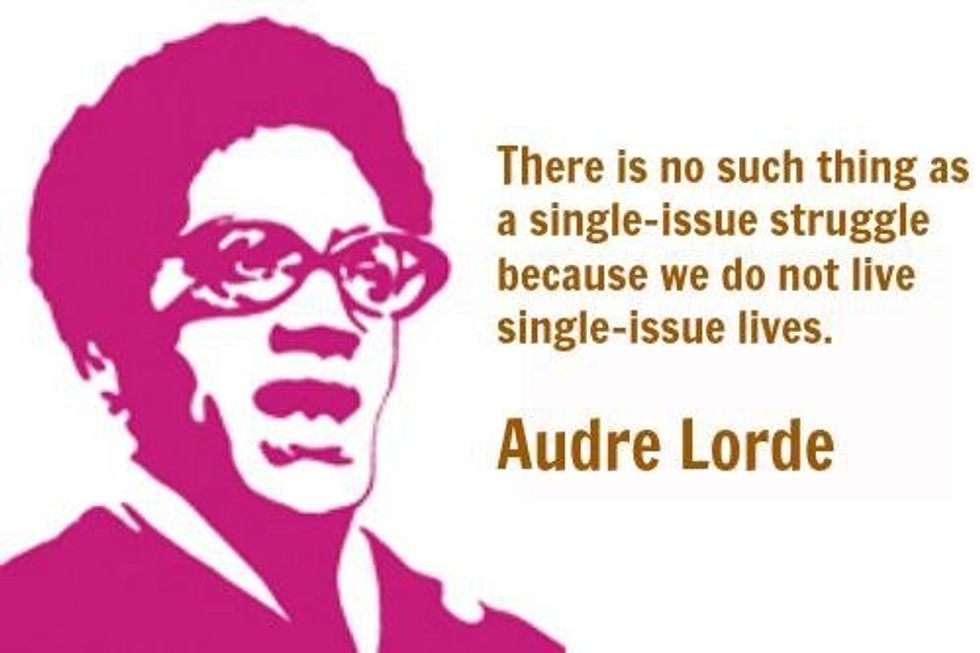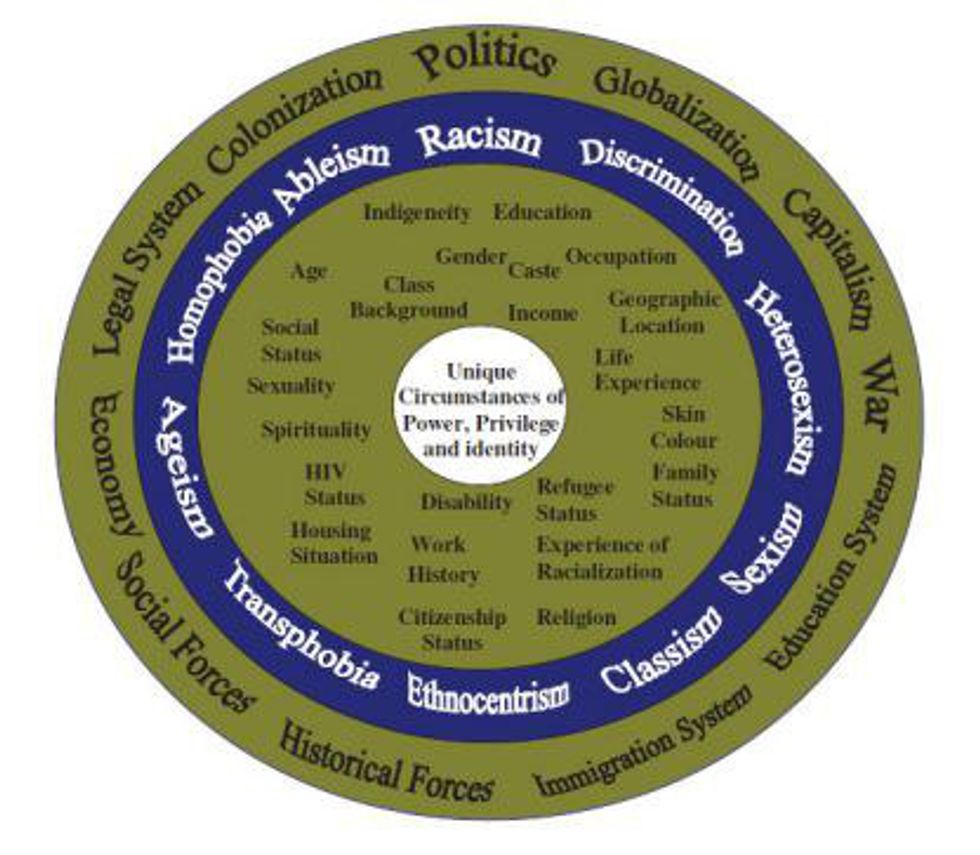Recently, I've been hearing the term "intersectionality" on campus more and more. But I didn't really know what it meant or why it was such a big deal. After some research, I realized, as a self-proclaimed feminist, LGBTQ+ ally, and all around social justice warrior, this term is vital in understanding oppression and privilege. With issues like the Syrian refugees, Yale University, University of Missouri, Black Lives Matter, "white feminism," and this crazy 2016 campaign (lookin' at you, Donald Trump), this topic is now more prominent than ever.
This term was coined by Kimberlé Williams Crenshaw in 1989. Crenshaw is a professor at UCLA School of Law and Columbia Law School, specializing in race and gender studies. As defined by the Institute of Intersectionality Research and Policy:
"Intersectionality promotes an understanding of human beings as shaped by the interaction of different social locations (e.g., ‘race’/ethnicity, Indigeneity, gender, class, sexuality, geography, age, disability/ability, migration status, religion). These interactions occur within a context of connected systems and structures of power (e.g., laws, policies, state governments and other political and economic unions, religious institutions, media). Through such processes, interdependent forms of privilege and oppression shaped by colonialism, imperialism, racism, homophobia, ableism and patriarchy are created."
So, in my less academic definition, I see it as "realizing that oppression and privilege come in different forms (women, African Americans, transgender), but they are all a connected system because the institutions that created these are interdependent."
Here's a nod to you more visual learners.
This is a lesson in realizing and acknowledging your privilege in this world and your oppression. Everyone has both. But, acknowledging our forms of oppression are all different and different experiences. The goal of understanding intersectionality is to understand diversity, work towards transformation, and work together rather than working as separate minority entities to question the insitutions that created these varieties of suffering. This movement is on the forefront as the black feminist movement is gaining traction and bringing a new light to police brutality.
And as closing remarks, intersectionality gets some push-back because it is seen as a way America is becoming too "PC" (politically correct). And let me just say that being too PC is not a thing! The reason we are finally making an effort to use more appropriate language and making our language more inclusive is because we have finally reached a point in which minority and oppressed groups can finally point out their oppression and educate others about how words have been used to sustain this treatment, because meaning is in the people not the words. I'm sorry if you feel you can't make a joke without offending people but maybe your jokes just really aren't that funny.






















